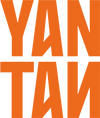TREATING SHEEP WITH THE RESPECT THEY DESERVE
How To Create Cruelty-Free Fabrics
The luxury of a British wool knit can’t be overstated. Be it layered over a white shirt and jeans or dressed up with a classic black trouser, the versatility of a wool knit is welcomed. However, the urge to buy an on-trend, well-made knit comes with a questionable unknown: is your garment cruelty-free? As data visibility is widely open to consumers, questions of ethical relevance are hard to ignore.
By name, cruelty-free, boasts obvious definitions. By practice, it lacks formal clarity. With the increase of ethical and social interest in fashion, comes a greater conscious awareness toward unethical practices surrounding animal derived products. Whilst ethical practice often relates to human treatment, animal welfare is often forgotten.
In simple terms, cruelty-free means ‘manufactured by methods which do not involve cruelty to animals’. Indeed, this may sound obvious, but the reality is far from simple, especially for worldwide wool production. As the world is becoming more conscious of how we eat, treat and wear animals, with a 40% increase in vegans in Britain in 2020 alone, we discuss the methods of sheep farming that are inhumane versus the sheep friendly processes that Yan Tan use and support.
So, how do we create cruelty-free fabrics and what are the wider implications of non-ethical practice?
There’s a notable relationship between media coverage of animal welfare and consumer demand for product. This, in turn, shapes the agricultural landscape and economic consistencies of, in this case, British wool. Whilst campaigns against animal welfare are rightly justified, the impact runs much deeper than surface level politics. The credibility of an industry such as sheep farming - whose mental and economic livelihood depends on consumer interest - is easily influenced by reports of cruelty relating to imported wool, regardless of individual practice in Britain. That is why Yan Tan work with British Wool to ensure our wool is sourced responsibly from accredited sheep farmers within the UK – farmers must meet UK animal welfare standards. This in turns helps the UK wool economy and supports our farmers wellbeing. Not only is it essential that we advocate for the correct and safe welfare of sheep worldwide, but also the greater systemic implications, such as farmer mental health.
Nearly two decades ago, in 2004, Peta called for a boycott to end mulesing – a surgical practice removing wool bearing skin in Merino sheep. This along with poor living conditions, shearing and stratified systems of export and corruption, are some of the inhumane methods of sheep farming in the world which British Wool does not support. We know where your wool has come from, do you?
Ethical wool can never maintain mass production. At Yan Tan we believe only in a product that is grown by happy, British sheep, complying with UK government animal welfare legislation.
As an industry that is often fraught with misconceptions, it is important that as consumers we are connected with our farming tradition. That is why ethics is at the heart of Yan Tan’s belief system, so we can shine a light on British wool trade, which has been active for thousands of years. In our small family run factory in Leicester we then turn our sustainable British wool into your beloved knitted pieces.
This means, free-range sheep encounters, where sheep can enjoy their natural social behaviours and avoid isolation from their flock.
This means, low density flocks and certifications which prove accreditations and correct ethical practice, such as gentle, seasonal shearing.
This also means, allowing sheep, who form innately complex social relationships within their herds and, who have extremely high learning abilities and memory retention, to be happy sheep.
Ultimately, reliable products, happy famers and the continuation of a long-established industry demands treating sheep with the respect they deserve. Happy sheep = good, quality wool.



